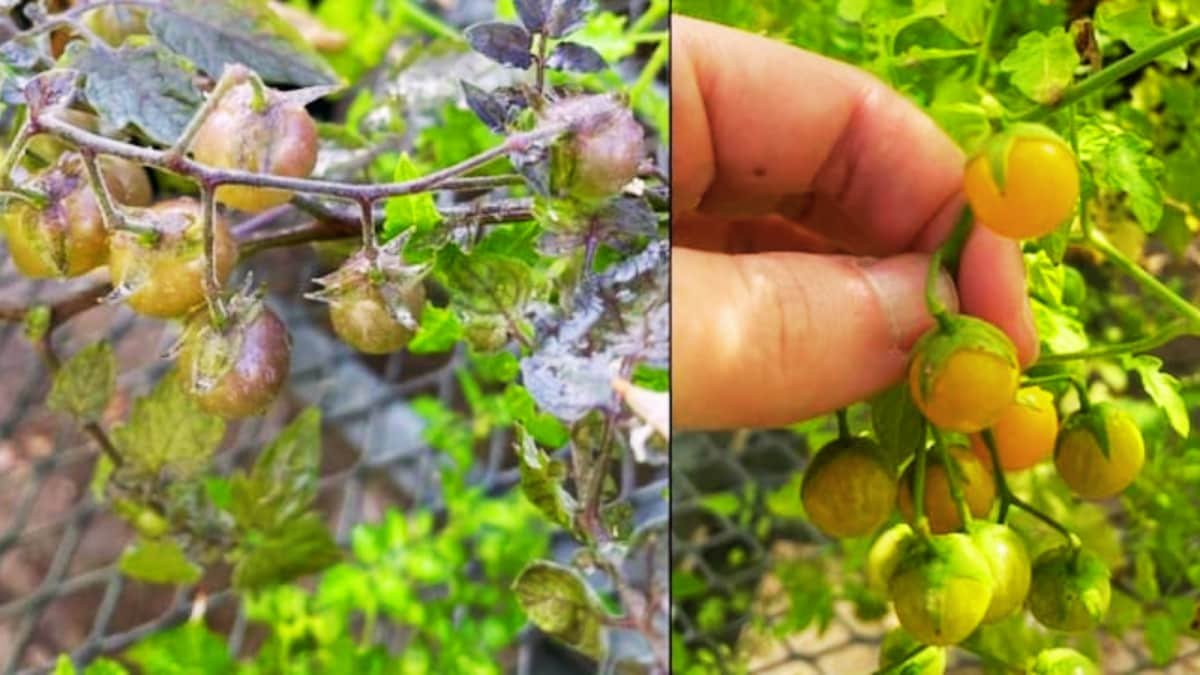Last Updated:July 07, 2025, 12:57 IST
Scientists find Galápagos wild tomatoes naturally reactivating ancient genes—offering insights into evolution, survival, and future biotech breakthroughs
Tomatoes on the eastern Galápagos islands contain modern crop-like alkaloids, while those on the harsher western islands produce primitive alkaloids found in ancient plant relatives. (News18)
In a groundbreaking discovery that has stunned biologists, wild tomatoes growing on the rocky terrain of the Galápagos Islands, Ecuador, have been found to naturally activate ancient genes, a process once thought to be nearly impossible in real-time evolution.
Two species, Solanum cheesmaniae and Solanum galapagense, are showing unexpected genetic reversals, suggesting that nature may be capable of ‘reverse evolution’. The remarkable find comes from a team of researchers at UC Riverside and Israel’s Weizmann Institute of Science, and the study is now published in Nature Communications.
What’s Happening In Galápagos?
The scientists collected 56 wild tomato samples from both the eastern and western regions of the Galápagos archipelago. What they uncovered was astonishing:
- Tomatoes on the eastern islands had modern crop-like alkaloids — naturally occurring chemicals often found in today’s farm-grown varieties.
- Tomatoes on the western, younger, and harsher islands contained primitive alkaloids — chemicals similar to those in ancient relatives like wild eggplants (brinjal).
The culprit? A tiny enzyme change. Just a few amino acid modifications in one key enzyme were enough to switch the tomatoes’ genetic programming back by millions of years.
A Case Of Genetic Atavism
This rare genetic phenomenon is known as Genetic Atavism — where long-dormant genes are reawakened. In lab experiments, scientists have reactivated similar traits in animals (such as growing teeth in chickens), but this is one of the first known cases of a naturally occurring, population-wide genetic reversal in plants.
Environmental pressures, particularly the barren, nutrient-scarce conditions on the western islands, are believed to have triggered this ancient defensive mechanism in the tomatoes, causing their genes to flip into survival mode.
Why It Matters: Evolution And Biotechnology
The implications go far beyond botany. This discovery offers a rare real-world view of evolution unfolding in reverse, and it has huge potential for biotechnology, agriculture, and medicine. Dr Adam Jozwiak, one of the lead researchers, notes: “By changing just a few amino acids, a completely different chemical can be produced. This opens the door to creating pest-resistant crops, less toxic fruits, or even new medicines.”
Understanding how nature rewires its own genetic code could allow scientists to intentionally mimic these changes; leading to breakthroughs in crop design, pharmaceutical compounds, and sustainable agriculture.
A Natural Wonder With Global Impact
While these tomatoes may seem like a quirky island curiosity, they could be the key to unlocking ancient genetic blueprints that modern science is only beginning to understand. The Galápagos, famously known as Darwin’s natural laboratory, continues to challenge what we think we know about life’s adaptability.
This isn’t just a story of tomatoes, it’s a reminder that evolution doesn’t always move forward. Sometimes, nature takes a step back to survive the future.
- First Published:
#Reverse #Evolution #Wild #Galápagos #Tomatoes #Bring #Ancient #DNA #Life #Food #News



